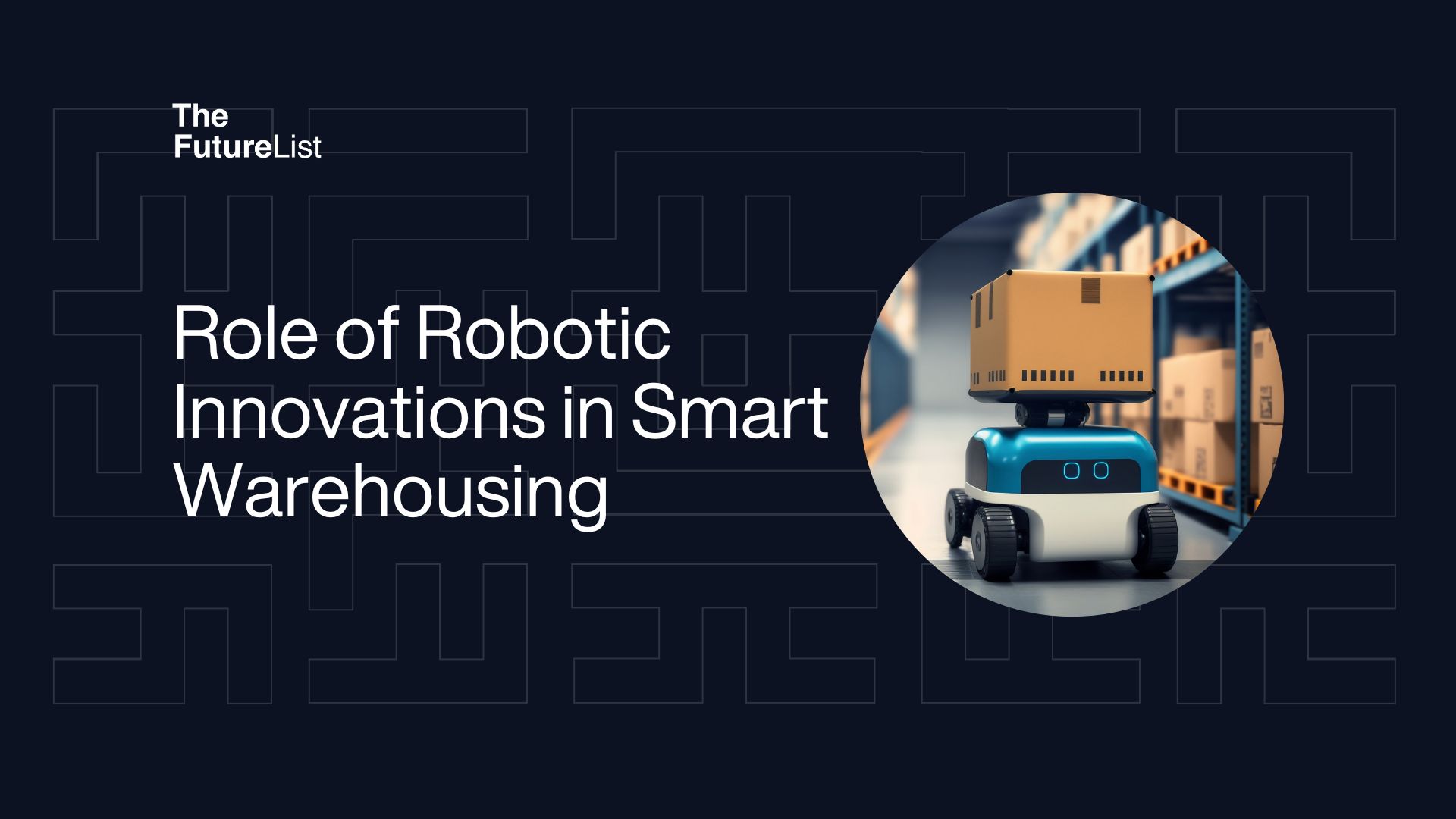
Role of Robotic Innovations in Smart Warehousing
By Noel Oduory
According to Fortune Business Insights, the global warehouse robotics market was valued at $4.86 billion in 2022 and is projected to grow from $5.26 billion in 2023 to $12.99 billion by 2030, growing at a CAGR of 13.8% during this period. This growth is driven by the rise of e-commerce, labour shortages, and the need for greater efficiency in supply chains. Our innovation snapshot highlights key players in this field in the US, specifically Dexterity, GreyOrange, RightHand Robotics, and Vecna Robotics, showcasing their unique contributions to the industry.
Dexterity
Dexterity was founded in 2017 and is based in Redwood City, California. The company was established by Samir Menon, who envisioned robots that could handle complex tasks with human-like dexterity. Dexterity specialises in creating intelligent robots that can adapt to various tasks in dynamic environments, particularly in warehouses.
Dexterity’s robots utilise advanced AI and machine learning algorithms to perform a range of tasks from picking and packing to sorting and palletising. Their solutions are designed to integrate seamlessly into existing warehouse operations, enhancing productivity and flexibility. One of their notable achievements is the development of robots capable of handling delicate items with precision, reducing damage and improving accuracy in order fulfilment.
GreyOrange
GreyOrange was founded in 2011 by Samay Kohli and Akash Gupta and is headquartered in Atlanta, Georgia, with significant operations in India and Japan. The company focuses on AI-driven robotics systems designed to streamline warehouse operations and improve efficiency.
GreyOrange offers an integrated system of robotics and software, known as the GreyMatter platform, which optimises the entire warehouse process from inventory management to order fulfillment. Their flagship product, the Ranger Robot Series, includes autonomous mobile robots that can transport goods throughout the warehouse, significantly reducing the time and labour involved in manual handling. GreyOrange’s technology is particularly noted for its scalability, allowing warehouses to adapt to changing demands without extensive reconfiguration.
RightHand Robotics
RightHand Robotics is based in Somerville, Massachusetts, and was founded in 2014 by a team of Harvard, Yale and MIT graduates, including Lael Odhner, Yaro Tenzer, and Leif Jentoft. The company specialises in robotic piece-picking solutions designed to handle the challenges of modern e-commerce and retail fulfilment.
RightHand Robotics’ primary innovation is its RightPick system, which combines machine vision, grasping technology, and machine learning to automate the picking process. This system is capable of handling a wide variety of items, from small, delicate objects to larger, bulkier goods. By integrating seamlessly with existing warehouse management systems, RightHand Robotics’ solutions help to increase picking speed and accuracy, addressing one of the most labour-intensive tasks in warehousing.
Vecna Robotics
Vecna Robotics was founded by Daniel Theobald in 2018 and is headquartered in Waltham, Massachusetts. The company was spun out from Vecna Technologies and focuses on developing autonomous material handling solutions for warehouses and distribution centres.
Vecna Robotics offers a range of autonomous mobile robots (AMRs) that can be used for various tasks such as pallet moving, order picking, and goods transportation. Their robots are powered by an advanced AI platform that allows them to navigate complex warehouse environments and adapt to real-time changes. Vecna’s robots are designed to work collaboratively with human workers, enhancing overall productivity and safety in warehouse operations. One of their key innovations is the Pivot.al platform, which provides real-time insights and analytics to optimise warehouse workflows and decision-making.
Challenges and Future Outlook
Despite the significant advancements, the robotics in warehousing sector faces challenges such as high initial costs, integration with existing systems, and the need for continuous updates to keep up with evolving technology and demands. Additionally, there is the challenge of ensuring that these robotic systems can handle the vast diversity of products typically found in warehouses.
Looking ahead, the future of robotics in warehousing appears promising. As technology continues to advance, the cost of robotics is expected to decrease, making it more accessible for smaller operations. Innovations in AI and machine learning will further enhance the capabilities of these robots, enabling them to handle more complex tasks with greater efficiency.
Get innovation insights from The FutureList weekly. Subscribe to our newsletter here.
Categories
- Agritech
- Artificial Intelligence
- Biotech
- Blockchain
- Climate Tech
- Data Infrastructure
- Edtech
- Events
- Fashion
- Fintech
- Healthtech
- Infrastructure
- Innovation Memos
- Innovation Scout Program
- Insight
- Insurtech
- Machine Learning
- Martech
- Mobility
- Music and Media
- Partner Offers
- Perks
- Procurement
- Proptech
- Retailtech
- Ridehailing
- Ridesharing
- Robotics
- Space Aviation
- Supply Chain
- Talent
- Telecoms
- Uncategorized
- Venture Capital
- Wastetech
- Women In Tech
Recent Posts
- How AI Surveillance is Shaping Public Safety in Smart Cities
- Innovation Memo with Zencey: Bringing Equitable Healthcare to Africa
- Inside the Software Model Running Modern Harbours
- The Formula for Future Speed: Data-Driven Performance in Racing
- Leveraging Next-Gen Endoscopic Interventions and Innovations for Healthcare